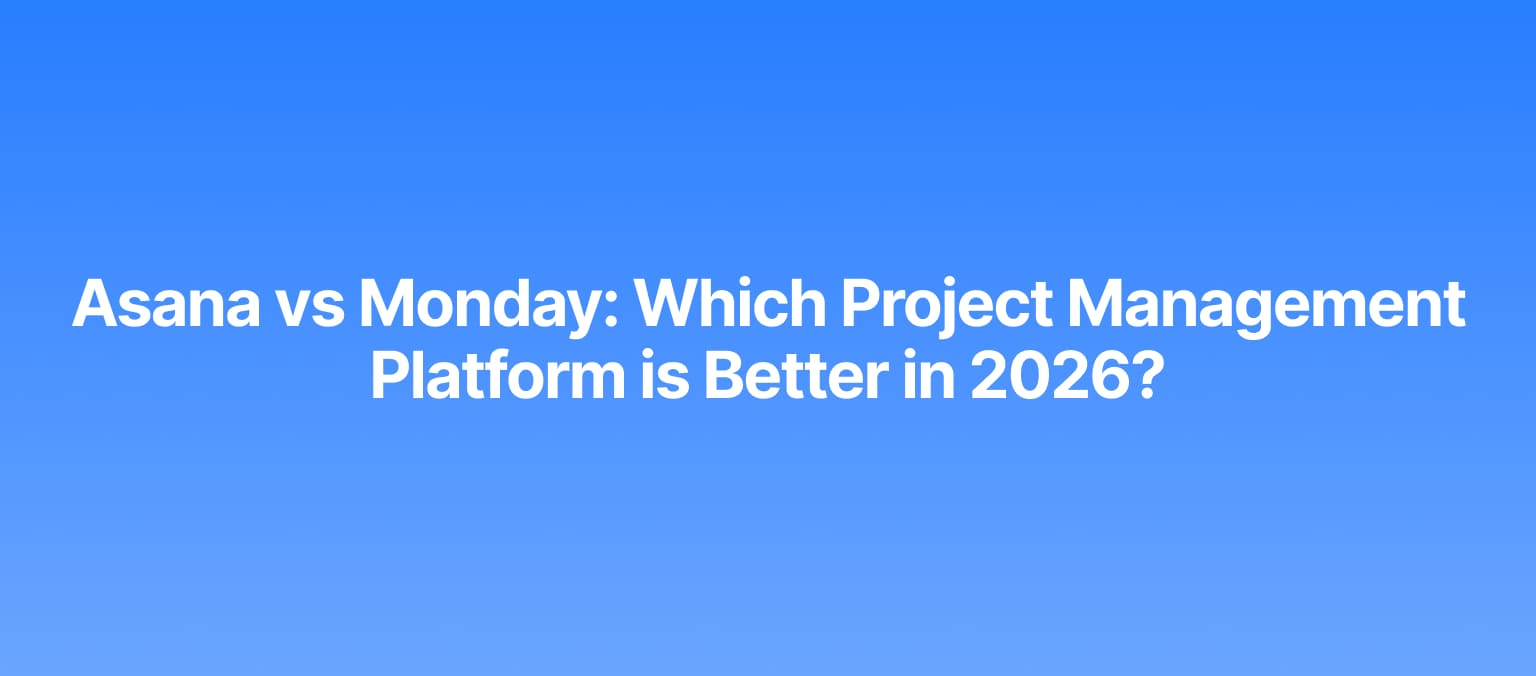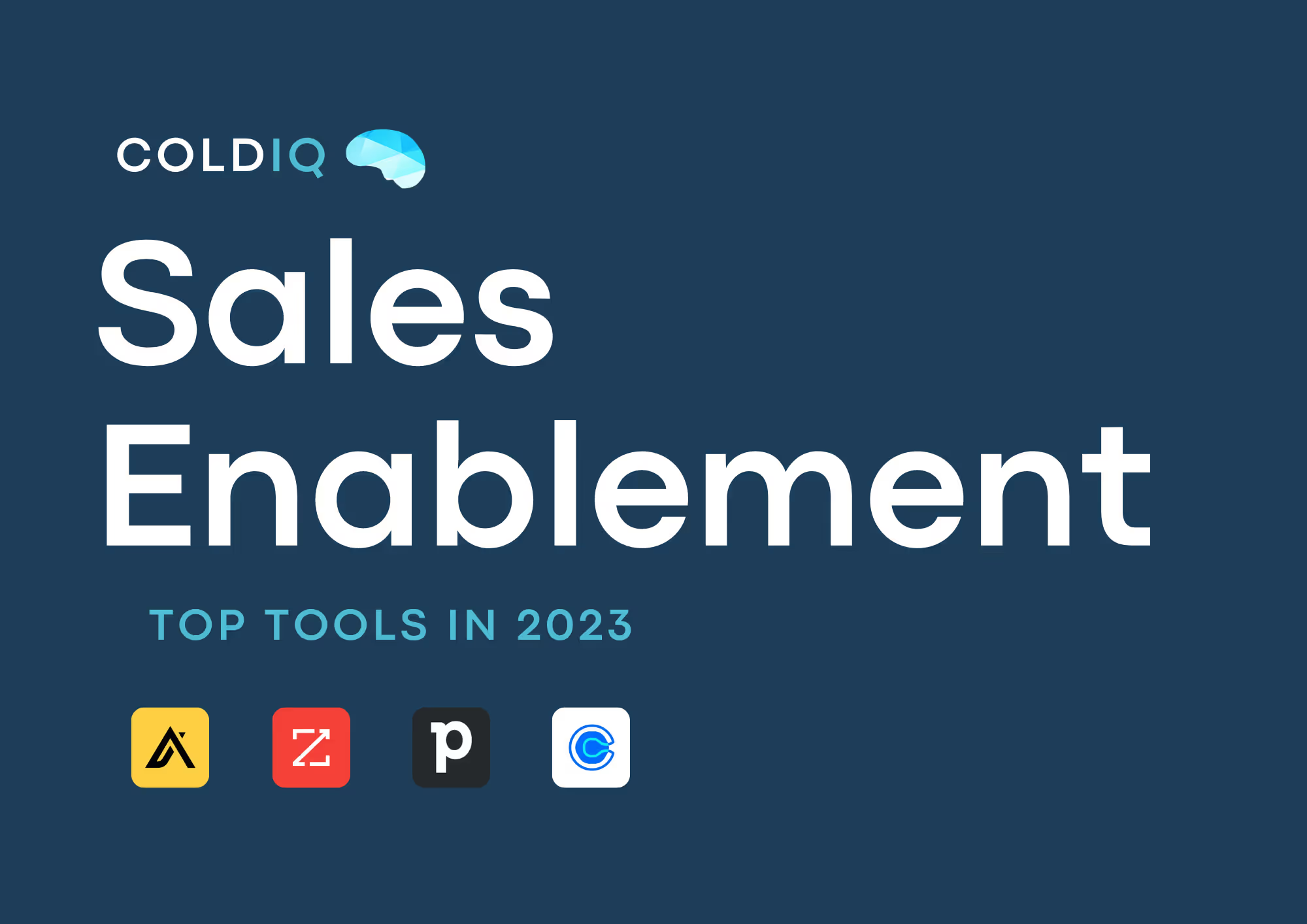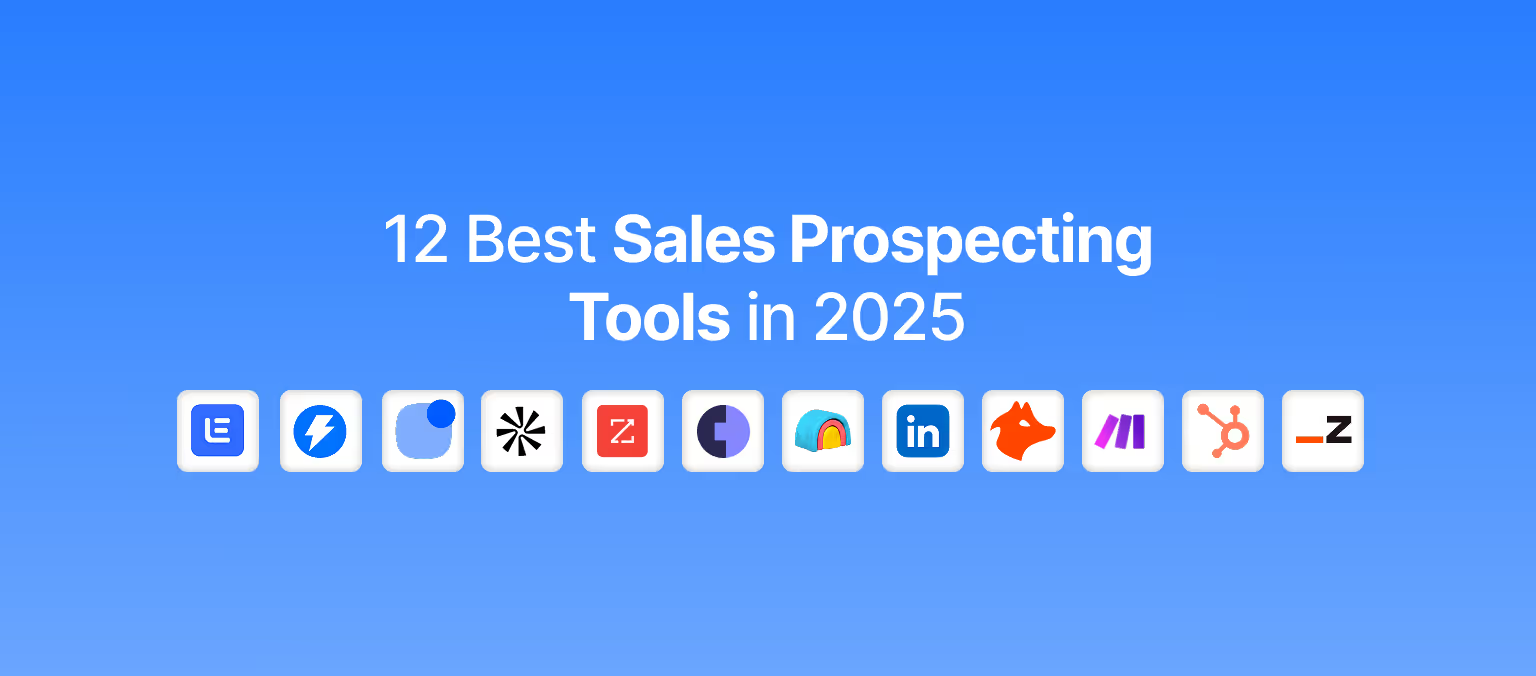Common Room vs. Unify: Which Intent Signals Platform is Better? [2026]
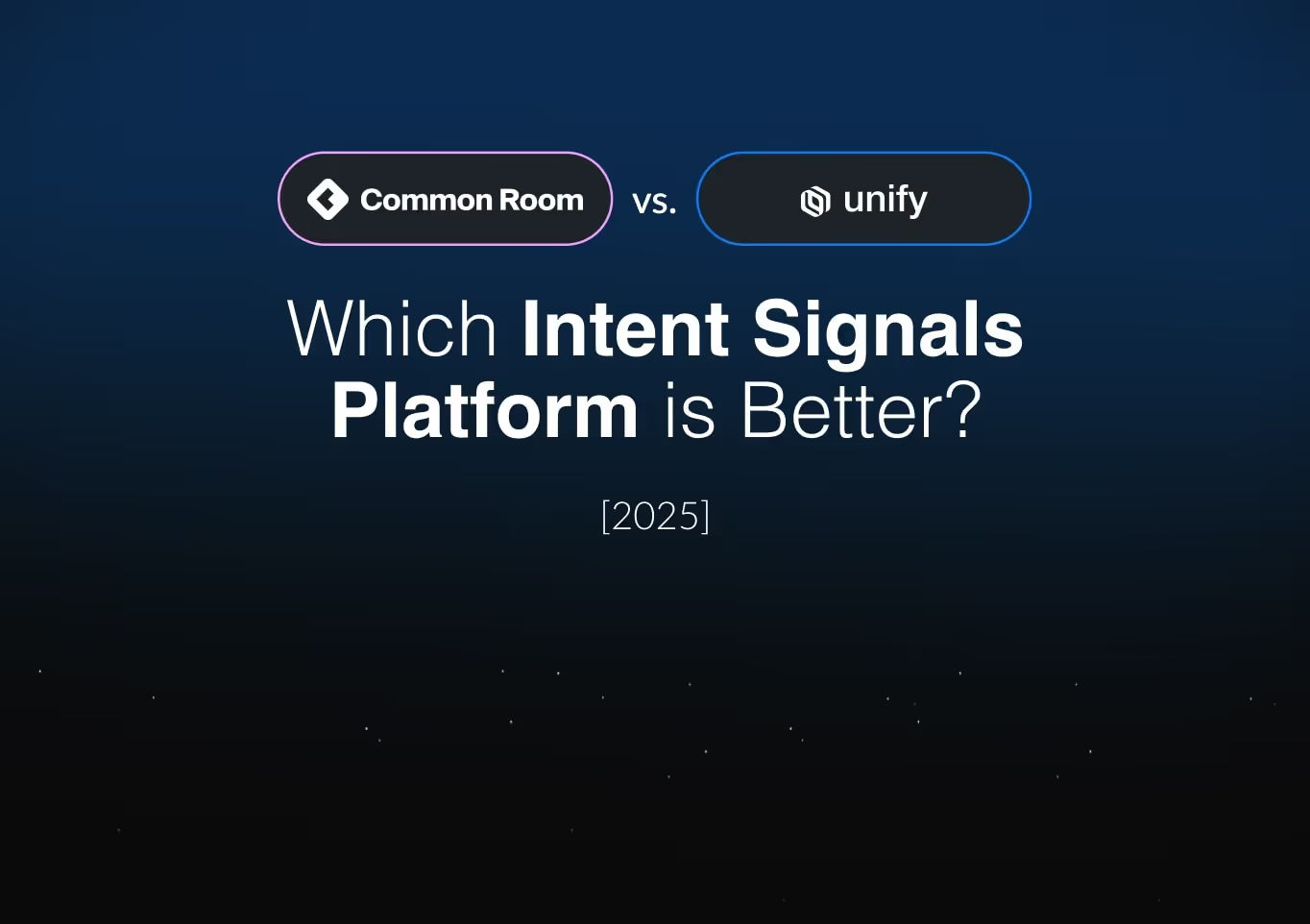
Common Room vs. Unify: Which Intent Signals Platform is Better? [2026]
If you’re looking for a sales automation platform that provides intent signals for its users, Common Room and Unify are two options you should consider. Both platforms offer valuable insights that allow you to identify and leverage high-quality leads to your advantage.
But which one should you choose for your business?
The answer depends on your needs and your business’s objectives. As such, you should compare the two options to select the right platform that suits your sales strategy.
Here is why you have this comparison guide. In this article, you will learn about how Common Room and Unify differ. Let’s get started.
Common Room vs. Unify: A Quick Glance
Here is the summary:
Both sales platforms offer actionable insights to find qualified lead opportunities but their operations slightly differ.
- Common Room is perfect for getting intent signals, leveraging them to generate high-quality leads, and integrating with more platforms.
- On the other hand, Unify is ideal for obtaining intent signals, finding relevant prospects, and implementing an outreach strategy to generate sales opportunities.
Learn more about the two sales platforms to make an informed decision for your business.
What’s Common Room?

Common Room is a customer intelligence platform designed to fuel your sales pipeline and generate revenue at scale. It implements a unique three-pronged approach to achieve this objective.
First is its intent signal feature that captures buying signals at every stage of the customer journey. This feature provides various signals ranging from website visits to fundraising announcements, employment trends to technologies used, and so on.
Next is its Person 360 feature which identifies the person and account behind each signal and unifies their information in a single customer profile. Then, the platform leverages the information to execute an outbound campaign through signal-based plays. These plays require personalized messages crafted by the platform’s AI agent, Roomie AI, which is sent through an auto-pilot sequence.
Common Room is also effective for account prioritization and prospecting. With custom tags and filters, you can refine and narrow down your search results to fit your ideal customer profile (ICP). The customer intelligence platform integrates with notable third-party platforms such as CRMs, sales engagement tools, social media platforms, and more.
Overall, Common Room is a go-to sales platform to generate qualified opportunities and drive revenue growth.
What’s Unify?
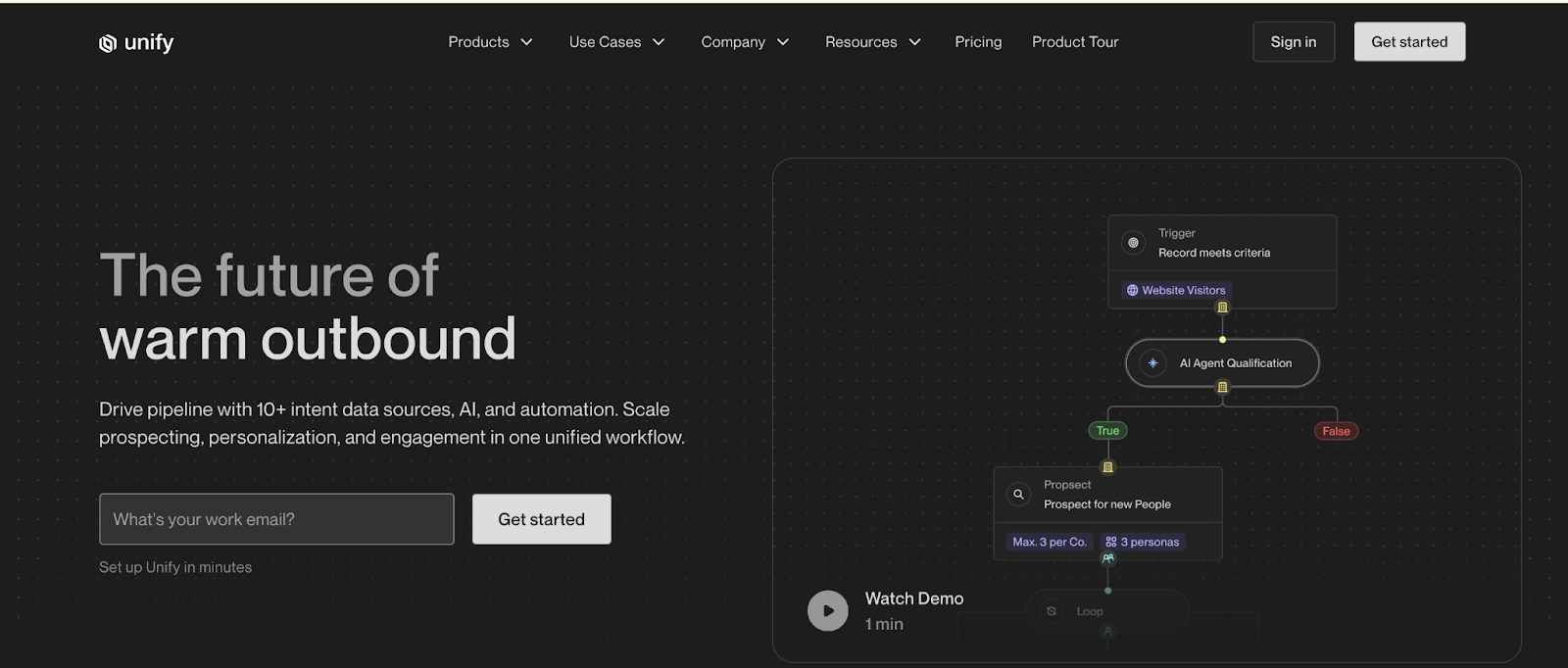
Unify is an all-in-one solution for warm outbound generation and scaling revenue growth. The AI-powered solution is ideal for sales and marketing teams, founders, and lead generation agencies seeking qualified opportunities to boost their sales efforts.
Unify operates through two main approaches. First, it provides buying signals sourced from over 10 data vendors to find potential sales opportunities for your business. Then, it executes an outbound sequence in the form of plays. This sequence features an AI sales agent that scales account research, qualifies leads based on signals to fit your ICP, and creates personalized experiences that resonate with them.
Unify integrates with a limited set of tools such as HubSpot, Salesforce, Zapier, Slack, AI agents, and more. Altogether, it’s a reputable sales platform for getting high-intent signals and executing an effective outbound campaign.
Common Room vs. Unify: Features Breakdown
Common Room and Unify have some similar features with slight differences that improve your sales process and yield results . These features include:
- Intent Signals
- Lead Generation
- AI Sales Agent
- Outreach Sequences
- Integrations
Intent Signals
Imagine having a platform where you get valuable data points to show whether a prospect is interested in your products or services. That’s what Common Room and Unify do. These sales platforms provide buyer intent signals to show the potential customers interested in your business’s solutions. Let’s see how they both operate.
Common Room
Common Room provides different kinds of signals to help you identify and prioritize the most relevant leads to your business. Whether it’s 1st-party, 2nd-party, or 3rd-party signals, Common Room provides these digital footprints to uncover potential sales opportunities.
For instance, you can get signals from your website by identifying your website’s visitors and the pages visited. You can also get market signals like fundraising announcements, new executive hires, and more.
Additionally, the sales prospecting tool can identify target accounts that are on hiring sprees or layoffs, the kind of technologies used, and their social activities on channels like LinkedIn, X (Twitter), Slack, and more. The intent signal platform also allows you to pull in signals from your source. You can use the platform’s API, connect to Zapier, or upload a CSV file to achieve this goal.
On top of this, the platform’s AI-powered algorithm scores your leads with buying signals across every stage of the buyer’s journey. This approach enables your sales reps to identify and seize potential sales opportunities to your advantage.
Unify
Similarly, Unify leverages over 10 data sources to provide the right intent signals for your sales activities. You can get a comprehensive overview of your prospects through person or company-level signals. For instance, you can identify prospects who are on a hiring spree or obtain website intent signals to see their activities. It compiles all this information in a unified view so you can make informed decisions for your business.
Unify also segment your leads based on specific criteria such as ideal customer profile, CRM data, and more. Then, it leverages the intent signals to find the most qualified leads for your business. This process enables you to identify hidden opportunities and leverage them to your advantage.
Lead Generation
Intent signals become ineffective if they don’t align with a target account. Common Room and Unify offer distinct features to help identify the person behind each signal and enhance your lead-generation process.
Common Room
Common Room’s Person 360 feature tracks every signal — from website visits to product change, hiring sprees to fundraising announcements — to every person in its 200 million B2B contact database.
With custom tags and filters like job titles, locations, and more, you can segment your leads appropriately. This approach provides a comprehensive context that you can use to create a personalized outreach campaign.
The Person 360 feature also performs waterfall enrichment to find your prospects’ valid email addresses and phone numbers to contact them and ensure your cold outreach strategy is a success.
Unify
Unify’s Signals and Data feature provides a holistic view of your prospects. It leverages person and company-level signals to find your ideal buyers and segment them appropriately. It also performs waterfall enrichment to ensure maximum data coverage. It searches multiple vendors’ databases to find their valid email addresses and phone numbers for effective outreach.
AI Sales Agents
Designed to revolutionize the sales industry, AI sales agents offer invaluable data-driven insights, and personalized experiences, and streamline the sales workflow. Common Room and Unify offer AI sales agents to enhance your sales processes.
Common Room
Common Room’s AI sales agent, Roomie AI, performs various tasks to improve your sales team’s productivity and drive efficiency. First, it leverages these signals to identify the most promising prospects through the platform’s 200 million B2B contact database. With a simple prompt, it can research and find any information relating to your prospects, the signals, or your competitors.
Next, Roomie AI uses these buying signals to craft personalized messages that address your prospects’ pain points to increase the chances of conversion. Roomie AI also runs recommended plays based on the intent signals. It sends personalized messages across different channels like emails and LinkedIn to your prospects at scale to boost your sales outreach efforts.
Unify
Unify’s AI agents utilize intent signals to research, qualify, and create personalized experiences for your leads. The research process involves scraping relevant information from different websites, analyzing, and combining with these signals to qualify the prospects.
The AI agent is also notable for creating personalized experiences for your prospects. It combines the intent signals with your CRM and LinkedIn data to craft personalized messages that resonate with your prospects. These messages which imitate human interactions stand out from their inbox to drive conversions.
Outreach Sequences
Upon crafting personalized messages, the next step is to send them to your prospects via different channels for engagement and conversions. Although Common Room doesn’t have a dedicated outreach sequence feature to achieve this task, Unify does.
Common Room
Common Room’s AI agent, Roomie AI, sends personalized messages via different channels to reach your prospects. First, it uses email to deliver the crafted messages to your prospects. It also sends messages via LinkedIn to your audience. Whether it’s LinkedIn connection requests or direct messages, it delivers personalized messages to improve customer interactions with targeted accounts.
Unify
On the other hand, Unify has a dedicated sequence feature to send your personalized messages via different channels. You can create and automate your outbound campaign with email or LinkedIn (via Zapier).
It also features an email deliverability infrastructure to ensure your messages are delivered to your prospect’s inbox. With a few clicks, you can create multiple email accounts, set up dedicated IP addresses, and warm up these accounts to reduce the bounce rate. Unify also checks your cold email’s performance to identify deliverability issues, make improvements, and hit your target.
Integrations
Integration remains a crucial part of any sales intelligence platform. Both Common Room and Unify integrate with different platforms in your tech stack to transfer data seamlessly and streamline your workflow.
Common Room integrates with a wide range of third-party platforms such as CRMs, sales engagement platforms, social media platforms, and more. Examples include HubSpot, Salesforce, Outreach, Apollo, Gong, and other platforms.
On the other hand, Unify integrates with a limited set of tools. Users who need to explore different integration options may seek an alternative option. Some integration examples include Salesforce, Zapier, AI Agents, G2, Clearbit, Slack, and more.
How Much Does Common Room Cost?
Common Room offers a 14-day free plan for all users. Upon exhaustion, you must subscribe to one of its paid plans which are billed annually and comprises different features that cater to different business needs. These plans include:
- Starter plan which costs $625 per month and offers up to 35,000 contacts.
- Team plan which costs $1,667 per month and offers up to 100,000 contacts.
- Enterprise plan which requires a custom quote and offers up to 200,000 contacts.
How Much Does Unify Cost?
Unify doesn’t offer a free trial to explore its features. Users must subscribe to one of its paid plans which include:
- Growth plan that costs $1,000 per month and offers 2,500 credits
- Pro plan which requires a custom quote and offers 100,000 credits
- Enterprise plan which also requires a custom quote and offers 200,000 credits.
Common Room vs. Unify: Pros and Cons
Common Room and Unify have distinct strengths and weaknesses with key adoptions focusing on user-friendly interface, great customer support, and helpful features. We’ve checked review sites such as G2 to determine the platforms’ strengths and weaknesses.
Common Room Pros and Cons
Common Room is renowned for its powerful buying signals, customer support, and automated workflow. However, it suffers criticism for its non-friendly interface, missing functionalities, and limited customization.
Common Room Pros
- Buying Signals: Many G2 users commend Common Room for its intent signals that enable them to find and prioritize relevant leads. Its invaluable insights from different sources make it outstanding for building customer relationships and making informed decisions.
- Powerful Automation: Common Room automates every sales process to drive productivity and increase efficiency among the sales team. Whether it’s collection, analysis, or unification of intent signals, Common ensures a streamlined workflow to eliminate repetitive tasks and reduce the time designated for each process. It’s also effective for automating your outreach efforts, making it easy to reach your prospects.
- Customer Support: Common Room has helpful customer support that addresses all concerns about the product, payment, technical issues, and more.
Common Room Cons
- Non-Intuitive Interface: Common Room’s user interface is not easy to navigate as training is required for an effective onboarding process.
- Missing Functionalities: Many G2 users wish the customer intelligence platform had more functionalities such as built-in A/B testing capabilities, data transfer, repurposing scraped content, and more.
- Limited Customization: Customizing data with Common Room can be a bit tricky as you may require help from the support team.
Unify Pros and Cons
Unify shines for its intuitive interface, lead generation capabilities, powerful automation, and customer support. However, it faces issues with its integration, missing functionalities, and learning curve.
Unify Pros
- User-friendly Interface: Unify’s interface is intuitive, making its adoption easy for users. With a few clicks, you can set up the platform, discover intent signals, and leverage them to your advantage.
- Lead Generation Capabilities: Unify’s intent signals help you find qualified leads to boost your sales efforts. With various types of signals, the platform matches each signal to its owner and provides relevant information to create a personalized experience for them.
- Automation: Unify automates different sales activities such as prospecting, outreach, and integrations. This makes it ideal for sales teams seeking to create an efficient process and boost productivity.
- Customer Support: Unify features friendly customer support, ready to help you set up the platform and answer all inquiries.
Unify Cons
- Integrations: Unify requires integration with additional platforms such as HubSpot to ease adoption and transfer data seamlessly.
- Limited Features: Many G2 users require Unify to add more features such as A/B testing capabilities, individual de-anonymization of website visitors, and more.
Common Room vs. Unify: Conclusion and Recommendations
Common Room and Unify are excellent intent signal providers that generate qualified sales opportunities to fuel your sales pipeline and increase revenue. However, you can lose out on these sales opportunities if you can’t optimize these AI sales tools to their full potential.
That’s why you should hire ColdIQ to leverage these tools and generate qualified leads to boost your sales efforts. Our agency does quality work with both platforms to flood your business with vast sales opportunities. We utilize the tools to get the right signals, match with qualified leads, and bring them for you to close deals. Get in touch with us today!
FAQ
Both platforms suit B2B companies focused on outbound sales, especially SaaS and tech firms. They work best when targeting mid to enterprise-level accounts where detailed intent data improves lead quality. Small startups might prefer simpler tools first.
Common Room and Unify follow strict data protection policies and comply with GDPR and CCPA. Each platform anonymizes sensitive information and offers options for data control to meet legal requirements. Customer data is securely stored and encrypted.
What type of support and training is offered after purchase?
How do these platforms measure the effectiveness of outreach campaigns?
Let's Get Started!
Schedule a 30-minute call with ColdIQ leadership to learn how our outbound strategy and sales tools help generate qualified leads and close deals.
.avif)
.svg)


